Still dead after all these years
Everyone knows the best Scrooges; we examine the best Jacob Marleys
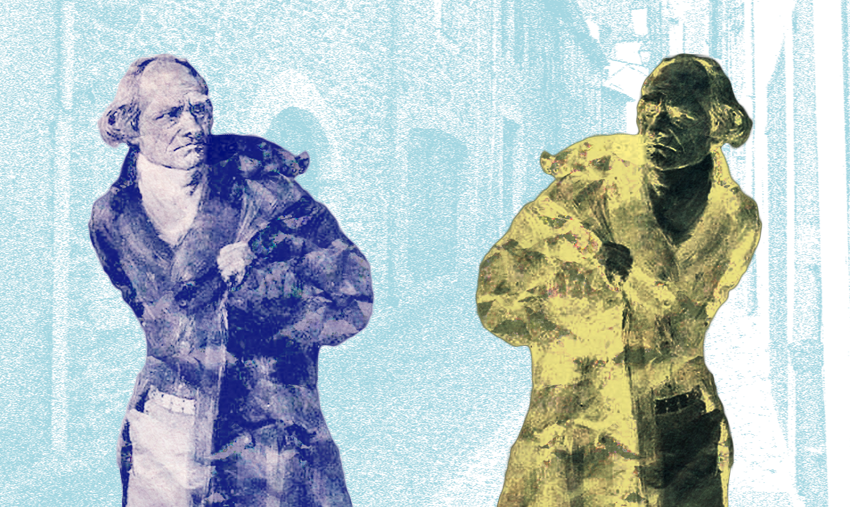
Just days before Christmas 1843 – 180 years ago today – Charles Dickens published his classic novella, A Christmas Carol.
In his post-Industrial Revolution society, Dickens was horrified by the sight of many starving families on the streets. So he wrote the story of Ebenezer Scrooge – in just six weeks – and when his editors balked at the final product, he paid for much of the publishing costs out of his own pocket. It was a worthwhile investment.
The character who serves as Scrooge’s change concierge is his late partner – that ghostly, posthumously-reformed carrier of chains, Jacob Marley. He is so important that Dickens, a master of the opening line, even kicks off the story with him: “Marley was dead, to begin with. There is no doubt about that.”
Question is: who has the acting chops to take on the role of such a layered and important character? The right actor should look good as a glowing door-knocker and a pasty ghost, while bringing the essence of “regretful, tortured soul in the depths of hell” to the character. There have been many, many on-screen portrayals of Jacob Marley in A Christmas Carol adaptations over the years, and we’ve chosen the best and most entertaining of them all.
If you don’t agree with us, well, bah humbug!
Frank Finlay in A Christmas Carol (1984), opposite George C. Scott’s Scrooge
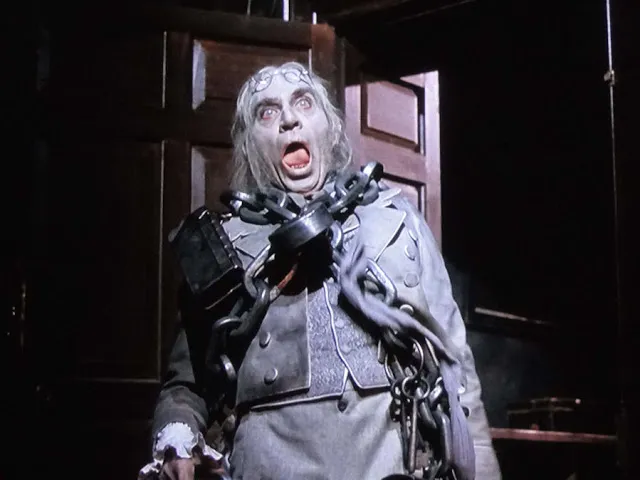
Frank Finlay’s wins for most stiff and most googly-eyed and unblinking Marley, although this could have to do with those heavy chains strapped to his body for so long (living in eternal darkness doesn’t help). In this made-for-TV movie, Finlay delivers what feels like a “link by link and yard by yard” look at the full range of Marley’s tortured, frustrated cries, from grumbling and gasping to sobbing and shrieking.
Statler & Waldorf in The Muppet Christmas Carol (1992), opposite Michael Caine
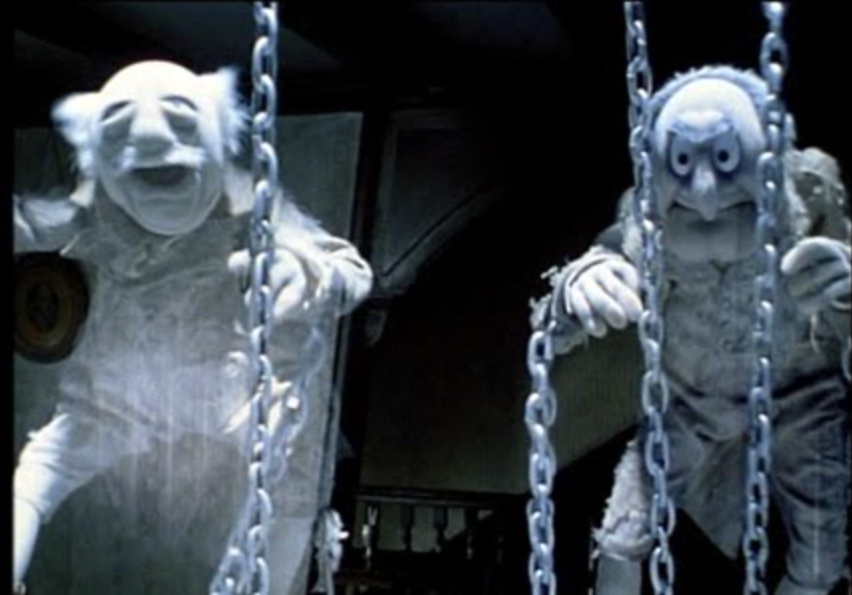
Marley #1 “There was something about mankind we loved.”
Marley #2 “I think it was their money!”
These hilarious hecklers give us a double-dose of Jacob (and Robert) Marley, with their musical take in a tune called “Marley and Marley.” They still manage to add some spookiness (in addition to their unsettling, blue-tinged ghost puppet “skin”) to their humorous song and act. The puppets portrayed the suffering, regretful duo – carrying two chains for the price of one – and they even heckled themselves for all the bad they did to others.
Sir Alec Guinness in Scrooge (1970), opposite Albert Finney
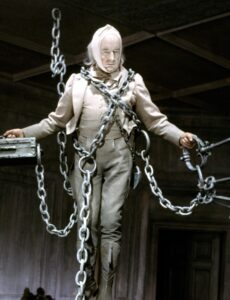
Obi-Wan’s portrayal of Marley is unique in that it’s a dry, dark, comedic take. The character is a pale, gothic ghost, but his mannerisms give this Marley a humorous edge that brings a little levity to an otherwise somber role. At one point, he pulls a chair toward him and proceeds to sit down on the air next to it. He’s a Marley who doesn’t take himself too seriously.
Bernard Lloyd in A Christmas Carol (1999), opposite Patrick Stewart
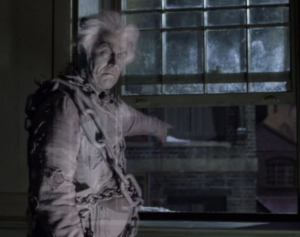
Lloyd’s Marley is a down-to-earth one, with a just-eerie-enough otherworldly feel. You can sense that, despite knowing that Scrooge has done awful things, this Marley is sad and afraid of the fate that awaits him if he doesn’t change. He conveys his warning to Scrooge with a tortured frustration, rather than the uncontrolled screeching that some other Marleys dish out. It’s a subtle take, but well-played.
Michael Hordern in Scrooge (1951) and A Christmas Carol (1971), both opposite Alastair Sim
How many actors get to play Marley not once, but twice? Hordern did, 20 years apart -and maybe not surprisingly, his later performance showed that he was a more experienced, nuanced actor. In 1951 he was a forced, crazy-spooky ghost, almost mockingly sobbing and groaning. His 1971 effort set a new standard for the character. This time, in an animated role, Hordern’s voice was less forced, yet still frightening and guttural with a sad, vibrating quality to it. His role was a contributing factor to the Oscar win for this short, 1971 version of A Christmas Carol.
